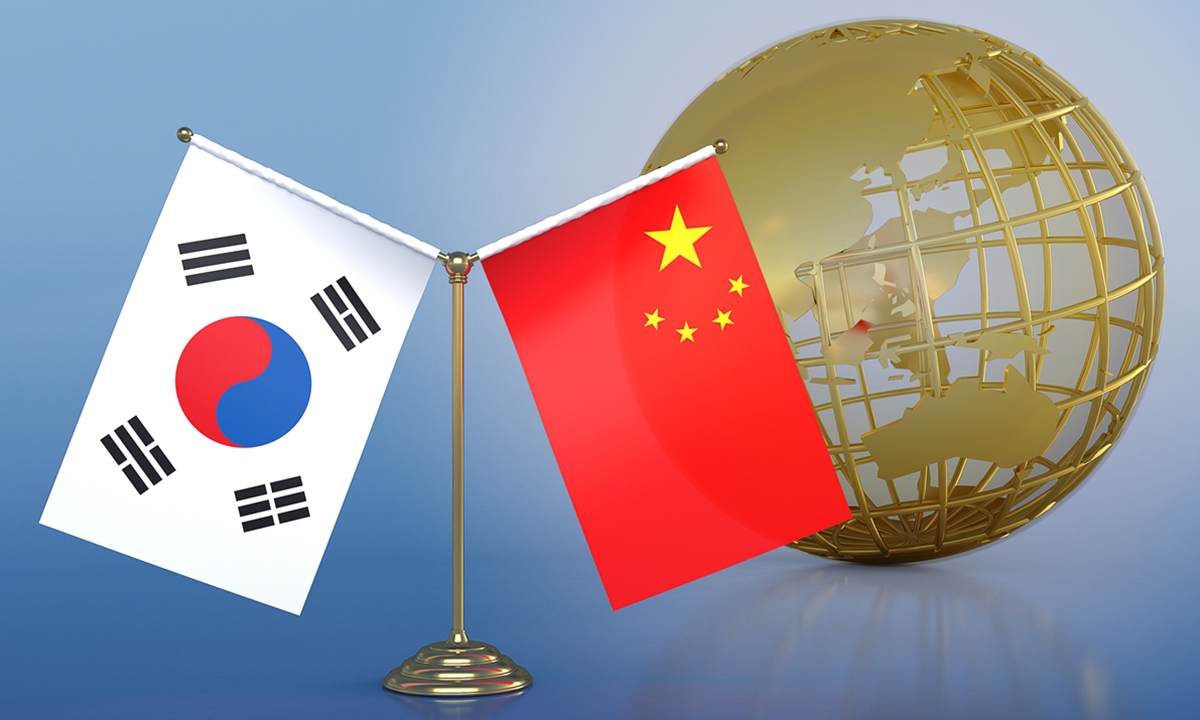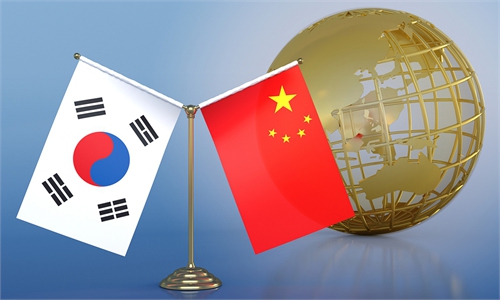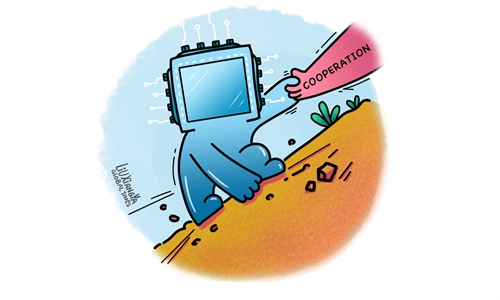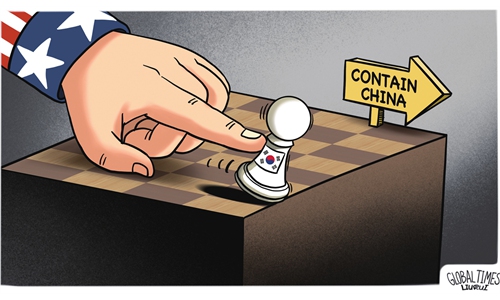How to interpret recent 'warm breeze' sent by South Korea toward China?: Global Times editorial

Photo:VCG
After instigating a series of diplomatic disputes and displaying "toughness" toward China, Seoul's attitude seems to have suddenly changed in the past couple of days, with a high-profile emphasis on "China-South Korean friendship." On June 25, South Korean Foreign Minister Park Jin stated in a news program that the basic stance of the Yoon Suk-yeol government is to advance South Korea-China relations into that of a mature and healthy one based on mutual respect, reciprocity and common interest, and the Yoon government sees "no reason to antagonize China and has no will to do so." He further expressed that Seoul will continue to strengthen strategic communication to promote friendship between South Korea and China.
This statement has sparked discussions in both China and South Korea. From the perspective of Chinese society, we certainly welcome and hope that the two countries meet each other halfway. However, to be frank, many Chinese people have doubts about Seoul's sincerity: Is it a realization of the overall trend or a measure of expediency? These doubts are not unfounded. An important "coincidence" is that South Korea's denial of "antagonizing China" happened to occur after the visit of US Secretary of State Antony Blinken to China.
Actually, after the official announcement of Blinken's visit to China, there has been a wave of voices in South Korean public opinion hoping to repair relations with China, because "China-US relations are entering a phase of easing tensions," and South Korea should follow suit. Therefore, even though the stated intention is to enhance "China-South Korean friendship," it still gives the impression of dancing to US' tune. The effectiveness of such a "friendly gesture" is questionable.
A government that cannot maintain independence and autonomy in foreign affairs will find it hard to help pull the China-South Korea relations out of a dilemma. Currently, when Washington wants to ease tensions, Seoul immediately responds with a "warm breeze." However, if Washington wants to tighten the situation in the future, wouldn't Seoul follow suit with immediate snowfall? The key issue is not just a matter of attitude. South Korea has cooperated with the US in damaging China's interests on issues such as THAAD and chips. The consequences of these actual actions are not something that can be resolved by simply blowing some "warm breeze."
Frankly speaking, since the inauguration of the Yoon government, China-South Korea relations have been deteriorating, and it seems they have not yet hit the bottom. Many insightful individuals in South Korea are expressing deep concerns about the unnecessary difficulties that China-South Korea relations are experiencing due to external or emotional factors. They have also criticized the South Korean government for its actions.
It is worth noting that China has never concluded or made the judgment that there is a reason for China and South Korea to antagonize each other. The self-defense of South Korea appears to be more of an attempt to ease domestic dissatisfaction and resentment toward the immature and unbalanced diplomacy of the Yoon government.
Regardless of the reason, having the willingness to improve relations is always better than exchanging harsh words, but ultimately it depends on the actions of South Korea. For example, when it comes to the Taiwan question, can South Korea return to its original position as an "outsider?" In Washington's strategy of "decoupling from" and containing China, does South Korea play the role of a communicator or an accomplice? In terms of security issues, does it want to maintain common peace or pave the way for an Asia-Pacific NATO? These will be important yardsticks for measuring whether the Yoon government truly wants to improve or stabilize China-South Korea relations.
Of course, South Korea has the right to develop friendly relations with other countries. Whether it wants to develop relations with the US and Japan based on equality and mutual benefit, sacrifice its own interests, or engage in "humiliating diplomacy," the Chinese people do not really care. However, if South Korea regards its relations with the US as a "guidebook" for developing relations with China, follows the US' lead, parrots Washington's tone, deals with China from a position of strength that is no longer what it used to be, or learns the bad US habit of "saying one thing while doing another," it will be inevitably difficult for the Chinese people to have a good impression of Seoul. If trust is lost, how can "China-South Korean friendship" be discussed?
In addition, South Koreans with a certain historical background will easily think of deeper issues. Some Korean media claimed that the US enjoys the logic of a great power, mobilizing the world to confront China while secretly seeking dialogue with China itself. Many South Koreans are worried that they may be "sold" by the US. As is well known, Japan has had a nightmare of "overhead diplomacy," which is also true for South Korea. Under the "America First" doctrine and the US' great power logic, the dilemma and nightmare of allies such as Japan and South Korea being abandoned have always existed. The more closely tied to the US, the more independence will be lost, and the heavier this nightmare will become.
China and South Korea share significant common interests, which even the most conservative political groups in South Korea cannot deny or ignore. We have observed that the Yoon government has recently tilted heavily in diplomacy, but there has also been a significant backlash within South Korea. Returning to rationality and pragmatism will be the only correct option that the Yoon government will eventually have to face. We hope that this shift will occur voluntarily rather than being forced upon South Korea.



